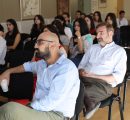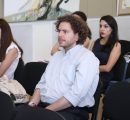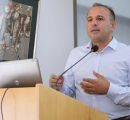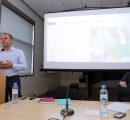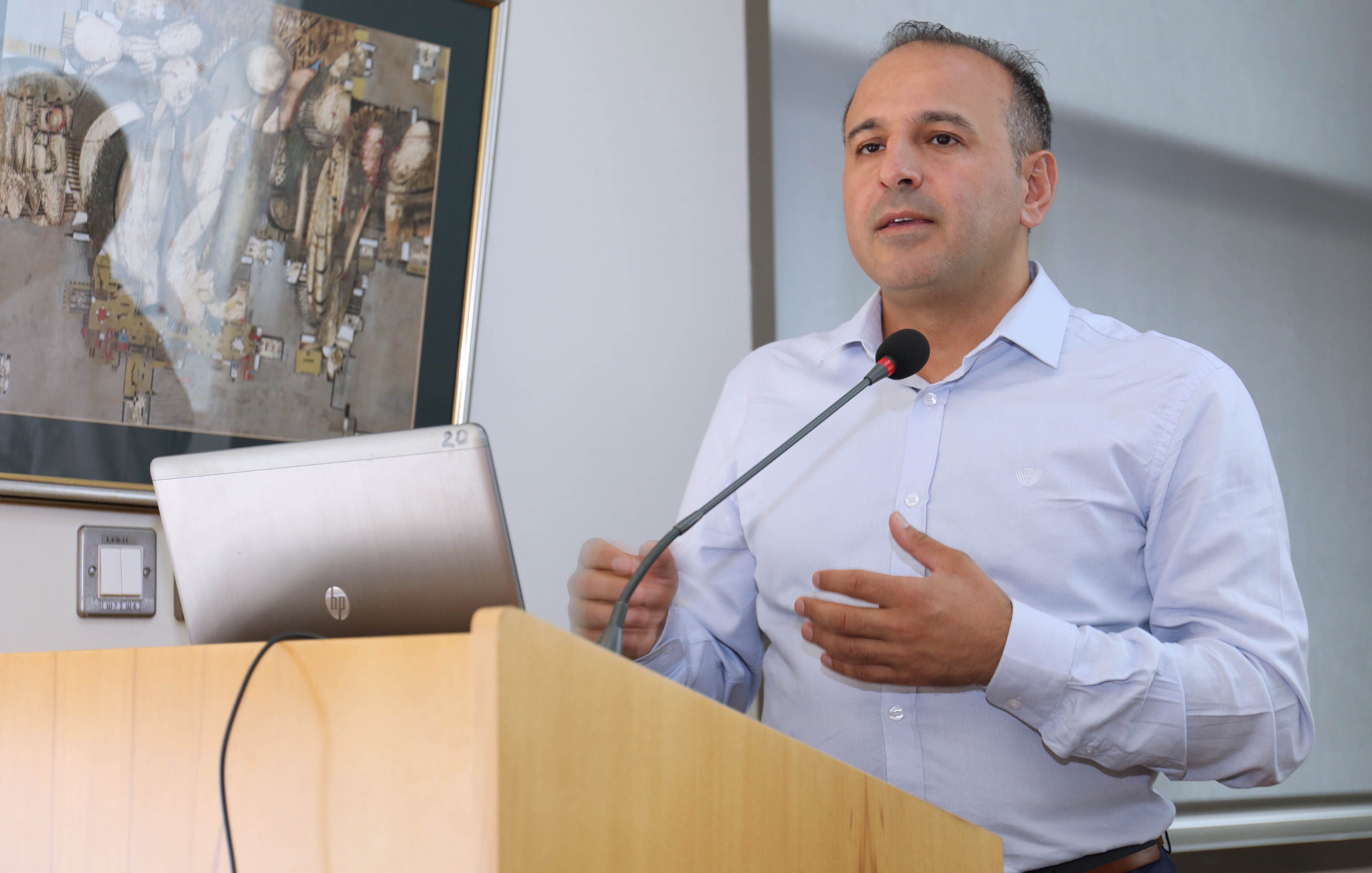
Current Debates in Turkish Foreign Policy: the Case of Cyprus
2 min read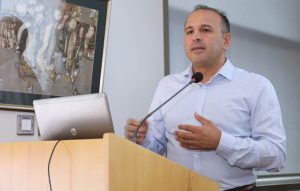 YEREVAN, Armenia – On September 27, the Political Science and International Affairs (PSIA) program of the American University of Armenia (AUA) held a debate on Turkish foreign policy, exploring the case of the Republic of Cyprus. The topic was presented by Assistant Professor Dr. Muzaffer Şenel, also the director of the Center for Modern Turkish Studies at Istanbul Şehir University. Dr. Şenel’s visit to AUA was made possible by the Hrant Dink Foundation. The event was part of a series of weekly PSIA seminars.
YEREVAN, Armenia – On September 27, the Political Science and International Affairs (PSIA) program of the American University of Armenia (AUA) held a debate on Turkish foreign policy, exploring the case of the Republic of Cyprus. The topic was presented by Assistant Professor Dr. Muzaffer Şenel, also the director of the Center for Modern Turkish Studies at Istanbul Şehir University. Dr. Şenel’s visit to AUA was made possible by the Hrant Dink Foundation. The event was part of a series of weekly PSIA seminars.
A main issue in Turkey’s current foreign policy focuses on Cyprus, in particular how the island should be divided between Greece and Turkey. Dr. Şenel began the presentation by explaining the importance of the island for Turkey, stating its geopolitical significance as a gateway to the Middle East. Furthermore, according to Dr. Şenel, the rights of the Turkish population in Cyprus are a major concern of the Turkish government. Even though one-fourth of the current population of Cyprus are Turks, they are considered a minority by Greek Cypriots.
Dr. Şenel also discussed the Annan Plan, a United Nations proposal to resolve the Cyprus dispute by restructuring the Republic of Cyprus. According to the Annan Plan, Cyprus would become a federation of two states. The main concern of Turkish foreign policy today is to achieve political equality of the Greek and Turkish sides within a federal state framework. However, negotiations on the dispute resolution are still ongoing. Furthermore, Dr. Şenel remarked on the role of the EU and UN within the context of the negotiations. “Turkish Cypriots want to solve the problem under the UN umbrella, taking into consideration that Turkey is a UN member state, while Greek Cypriots aim to engage the EU in the process of negotiations, as Greece is an EU member country,” stated Dr. Şenel. He went on to explain that for Turks the administrative mapping and island division is not as important as establishing a “rotating presidency.” He clarified that when a Turkish president takes office, the prime minister should be a Greek, and vice versa. Considering the fact that Cyprus is rich in oil and gas, the two parties are interested in resolving the issue quickly. Available energy resources are an important factor forcing the two parties to cooperate; however, problems remain unresolved.
Following Dr. Şenel’s talk, PSIA faculty members engaged in a debate, discussing issues such as the assets of Armenians forced to leave the island, compensation of losses, and Turkey’s relationship with the EU, and more.
Founded in 1991, the American University of Armenia (AUA) is a private, independent university located in Yerevan, Armenia and affiliated with the University of California. AUA provides a global education in Armenia and the region, offering high-quality, graduate and undergraduate studies, encouraging civic engagement, and promoting public service and democratic values.



